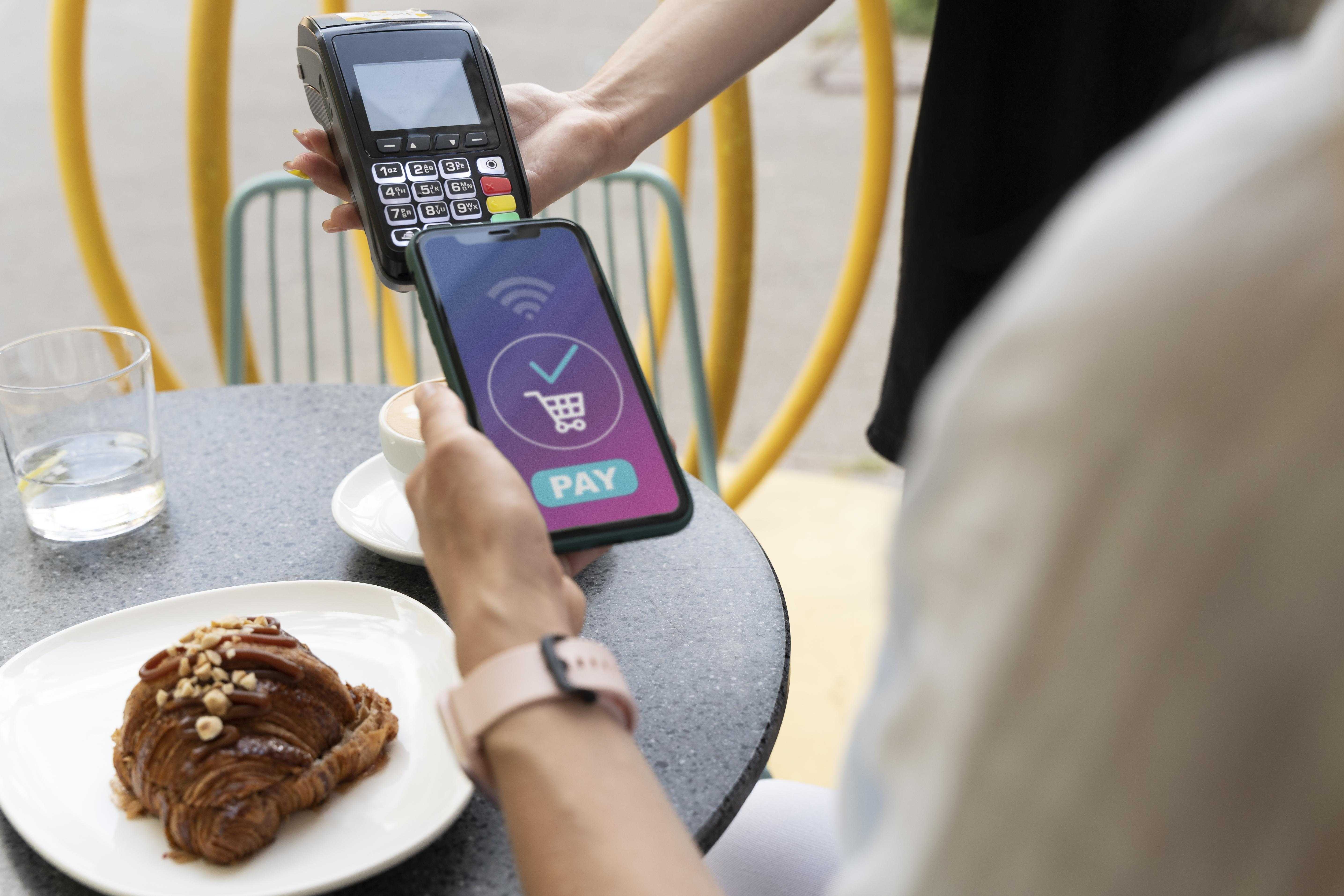Technology has taken over the entire world with a storm! And in this fast-paced race, restaurants are no exception as speed, convenience, and security for them are no longer optional. Diners are no longer content with waiting for servers to run back and forth to process payments. Instead, they want a seamless experience from start to finish which also includes how they pay. That’s where pay-at-the-table systems come in.
According to industry research, nearly 70% of diners prefer paying at the table when the options like mobile payment services are available. This technology has become a standard in full-service and casual dining environments.

But not all payments systems have ever been created equal. This is where it is important for you to choose the right pay-at-the-table system for your restaurant. This can impact your customer satisfaction, staff efficiency, and even your bottom line. This guide breaks down what you need to know to make the smartest choice for your business.
What is a Pay-at-the-Table System?
A pay-at-the-table system allows customers to complete their payment without ever leaving their seat. Servers bring a handheld or wireless payment device directly to the table, where customers can review the bill, split it if needed, add a tip, and pay. For this purpose, they can use contactless methods like Apple Pay or Google Pay. Think of it as a mobile extension of your POS system. These devices can do the following as well.
- Print or email receipts
- Handle loyalty points
- Update your sales reports in real time
This system eliminates the awkward back-and-forth where servers take the card, walk away, and return with a receipt. With rising concerns about credit card fraud, customers feel safer when the card never leaves their hand.
Why Your Restaurant Needs It in 2025
The restaurant experience has evolved dramatically in recent years. Since the pandemic, more diners demand contactless payments, faster service, and greater transparency when tipping or splitting bills. Pay-at-the-table systems meet all these expectations, and more.
A study by Toast POS found that restaurants that used handheld pay-at-the-table systems increased table turns by up to 15% and saw a 7% rise in tips.
Here’s why it’s essential:
- Faster turnover means more revenue during peak hours.
- Fewer errors from manual receipt handling.
- Increased security for card transactions.
- Better staff productivity, as servers don’t have to run to and from terminals.

Features to Look for in a Pay-at-the-Table System
Before choosing a pay at the table system, it’s critical to know what features actually make a difference.
1. Wireless Payment Terminals
These devices should be compact, lightweight, and able to handle all types of payments, chip, tap, swipe, and mobile wallets. Look for models that connect via Wi-Fi or LTE for uninterrupted service.
2. EMV and NFC Compatibility
Make sure the system supports EMV chips (for secure card transactions) and NFC (Near Field Communication) for mobile pay apps. This ensures your customers can pay however they prefer.
3. Tip Entry Bill Splitting
A great restaurant POS software system allows customers to easily enter a tip or split the bill by dollar amount or item, without making it awkward or confusing.
4. Seamless POS Integration
Your pay-at-the-table device should sync in real-time with your POS system, updating sales, inventory, and order status instantly. Manual input or delayed syncing leads to errors.
5. Security PCI Compliance
Ensure the system is PCI DSS compliant. End-to-end encryption protects sensitive cardholder data, reducing liability and fraud risk.
6. Offline Mode
Even the best internet goes down. Look for devices that work offline and sync once reconnected.
7. Digital Receipts
The ability to email or text receipts is a must in today’s paperless world. It also enables future marketing and loyalty efforts.
How to Evaluate the Right System for Your Business
Not all restaurants operate the same way. Choosing the best system or mobile payment services for you depends on your size, style, and daily needs.
1. Understand Your Workflow
- Fine dining restaurants may prioritize sleek design and tipping ease.
- Busy cafés or bistros might need rugged, fast devices with quick order recall.
2. Evaluate Hardware Compatibility
Some systems run on proprietary devices; others work on iPads or Android tablets. Pick what suits your service style.
3. Integration with Your Current POS
Don’t choose a pay at the table system that forces you to switch your entire POS. Ensure compatibility with leading platforms like Square, Toast, Clover, Lightspeed, or TouchBistro.
4. Ease of Staff Training
A complicated device slows down service and frustrates your team. Choose something intuitive with quick onboarding.
5. Support and Vendor Reliability
Does the provider offer 24/7 support? What’s the turnaround time for replacements? Will you have a dedicated rep?
According to Square, businesses using mobile POS devices saw a 40% decrease in payment-related delays.

Common Mistakes to Avoid
Choosing a pay-at-the-table system without careful research can lead to headaches and wasted money.
1. Choosing Based on Price Alone
Cheap doesn’t always mean smart. Lack of features or weak support can cost more in the long run.
2. Not Checking POS Compatibility
Some systems only work with specific POS brands. Confirm before committing.
3. Ignoring Tip Split Bill Features
Restaurants live on gratuities, don’t pick a restaurant POS software that makes tipping or splitting hard for customers.
4. Overcomplicating the Process
If your staff finds it confusing, your guests will too. Keep it simple.
5. Failing to Test Before Rollout
Always run a soft test phase with your team before going live during service hours.
Questions to Ask Your Vendor
Before you commit, make sure your provider can clearly answer these:
- Does this work with my current POS and printer?
- How are updates handled, are they automatic?
- What happens if the internet goes down?
- How long does it take to train staff?
- What’s your support availability?
- Are there hidden fees (per transaction, monthly, replacements)?
- How secure is the system? Is it PCI DSS certified?
Document the answers. Use them to compare vendors on paper before making a final call.
Choose Your Best Pay-at-the-Table System Now!
Choosing the right pay at the table system is a tech upgrade and a way to boost your customer satisfaction, speed up your service, and protect your business from outdated practices. When you evaluate your options, focus on ease of use, POS integration, security, and ongoing support. The right choice should complement your operations. So, take your time, do your research, and invest in a system that pays you back in loyalty, tips, and efficiency. Want expert help choosing the right solution for your restaurant? Contact our team at POS Circle today for a free consultation and demo.
Frequently Asked Questions
1. What is a Pay-at-the-Table system, and how does it work?
A Pay at the Table system lets guests complete their payment directly at their table using a wireless terminal. It improves service speed, boosts tips, and ensures secure card handling without requiring the server to leave the guest's side.
2. Can I integrate Pay-at-the-Table technology with my current Restaurant POS software?
Yes, most modern restaurant POS software platforms are designed to work seamlessly with handheld payment devices. It’s important to verify compatibility before purchasing to ensure real-time syncing with orders, tips, and receipts.
3. Are mobile payment services supported on these devices?
Yes. Most Pay-at-the-Table systems support major mobile payment services like Apple Pay, Google Pay, and Samsung Pay. These contactless options give guests more flexibility and speed up checkout time.
4. What kind of businesses benefit most from Pay-at-the-Table systems?
Restaurants, cafes, and casual dining spots with high customer turnover benefit most. The faster payment experience improves guest satisfaction and allows staff to serve more tables in less time.
5. How secure are Pay-at-the-Table transactions?
Very secure, these systems are PCI DSS compliant and use encryption to protect sensitive data. Since cards stay with the guest, it reduces the risk of skimming or fraud.








